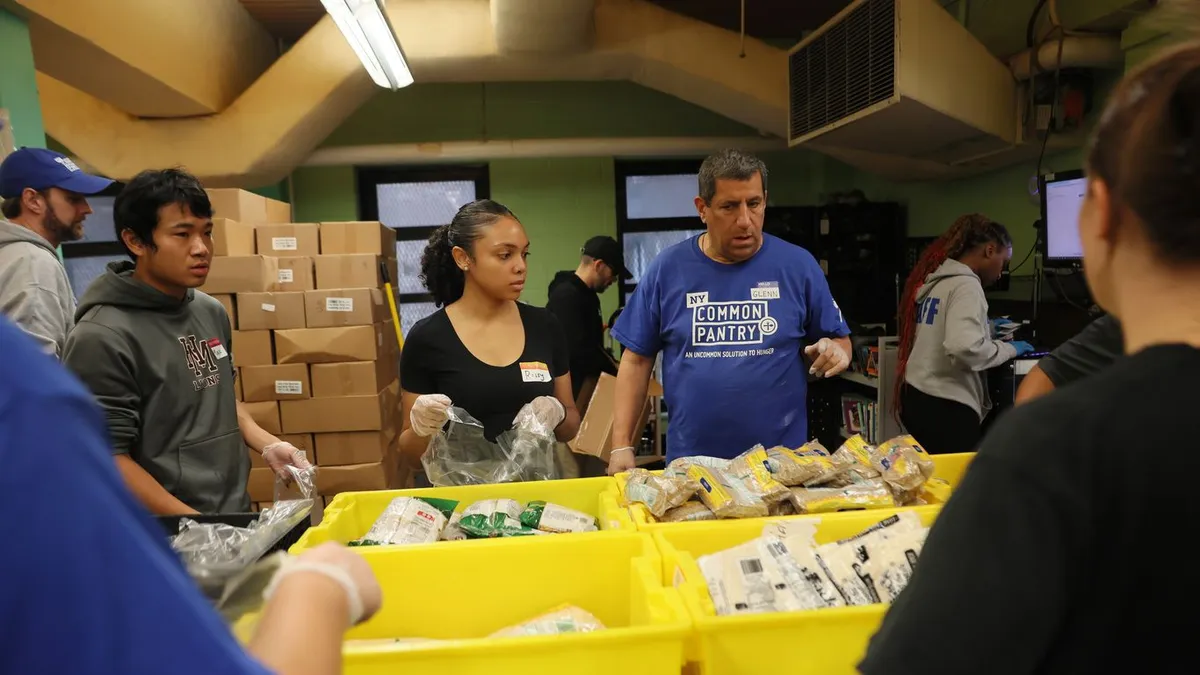
On Friday, President Donald Trump announced that he is requesting the Court to provide clarification on how the government can legally fund the Supplemental Nutrition Assistance Program (SNAP) as soon as possible. This move follows a ruling from a federal judge in Rhode Island, who mandated that the Trump administration must continue funding the program during the ongoing government shutdown.
Approximately 42 million Americans face the imminent risk of losing their supplemental food benefits starting Saturday. The key question remains whether Friday's court ruling will be implemented quickly enough to ensure that recipients receive their necessary financial assistance in a timely manner. Judge John James McConnell Jr. stated in his ruling that the administration must fund SNAP and is expected to provide a progress report by Monday, highlighting the urgency of the situation.
Judge McConnell expressed serious concerns about the potential for irreparable harm, emphasizing that many individuals are already experiencing anxiety regarding the availability of food funding for their families. According to NBC, McConnell stated from the bench, "There is no doubt and it is beyond argument that irreparable harm will begin to occur if it hasn't already occurred."
In a response posted on Truth Social, Trump expressed his desire to prevent hunger among Americans, stating, "I do NOT want Americans to go hungry just because the Radical Democrats refuse to do the right thing and REOPEN THE GOVERNMENT." He further added that if the Court provides appropriate legal direction, it would be his honor to provide the funding, similar to the support given for military and law enforcement pay.
For the time being, families can continue to put food on their tables, which alleviates some of the burdens on nonprofit food banks and pantries across the country. Diane Yentel, president of the National Council of Nonprofits, which was involved in the lawsuit, stated in an email, "These organizations can avoid the impossible burden that would have resulted if SNAP benefits had been halted."
Judge McConnell's ruling coincided with a decision from Massachusetts District Judge Indira Talwani, who ordered the administration to provide at least reduced SNAP benefits for November and required a report on their plan by Monday. This case involved a lawsuit filed by 25 Democratic-led states and Washington, D.C., aimed at compelling the Trump administration to resume food stamp payments during the shutdown.
Both lawsuits claim that the Trump administration is withholding up to $6 billion in emergency funds intended to sustain SNAP benefits. The administration has contended that these funds are not available, as the U.S. Department of Agriculture (USDA) may need them for natural disasters or other emergencies. However, Judge McConnell rejected this argument, stating that the immediate needs of people outweighed the agency’s concerns about potential future emergencies.
Even if the White House complies with the court's rulings and releases the funds, experts warn that recipients are unlikely to see their benefits by Saturday. States were previously instructed not to prepare for November benefits, meaning they will require additional time to catch up. Lauren Bauer, a fellow at Brookings who studies safety net policies, confirmed to Axios, "Unequivocally, there will be delay."
The situation has stirred political tensions, with Democrats accusing Republicans of using hunger as a political weapon. As a result, food banks across the nation have already experienced a surge in demand as millions of families brace for the potential freeze on their benefits.
The unfolding events surrounding SNAP funding during the government shutdown highlight the critical intersection of food security and government policy. As legal battles continue, the well-being of millions of Americans hangs in the balance.